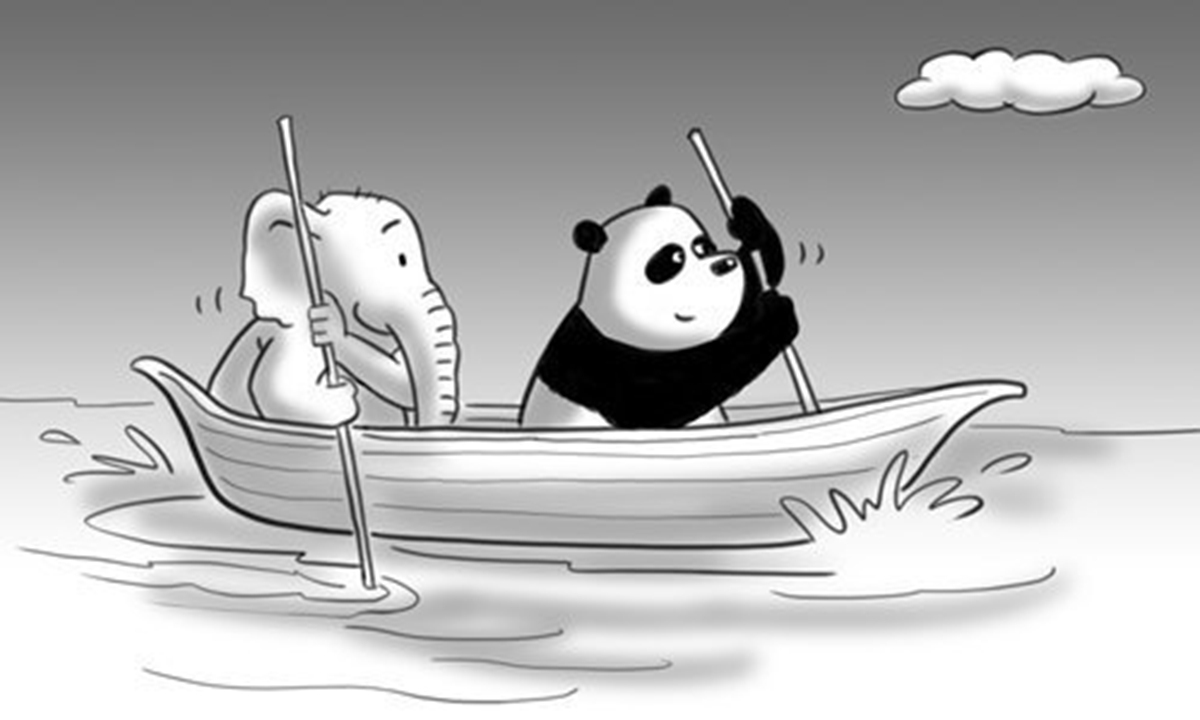India needs rational foreign policy to boost its economy
By Yu Ning Source: Global Times Published: 2020/7/22 20:24:03

Illustration: Liu Rui/GT
Indian External Affairs Minister S. Jaishankar on Monday laid out his views on the power differential between China and India. The Indian minister told a TV channel that the gap in the development of India and China over the last three decades has "implications" for the bilateral relationship, the India-based Deccan Chronicle reported.
He said China must be given credit for its impressive growth in the past few decades by focusing on economic growth and sweeping reforms, adding that China's growth was much faster than that of India.
Indian media quickly interpreted what the "implications" are for China-India relations. The Hindustan Times, in its Tuesday editorial, wrote that "India's recognition of the power differential is significant," saying, "Economic growth is key to foreign policy. Fix it." The newspaper is right to call India to focus on the economy. But how?
In this regard, China's experience could serve as a reference for India. In 1988, when the then prime minister Rajiv Gandhi visited China, the sizes of the two economies were roughly the same. Why has China leapfrogged since then at a pace that is much faster than that of India?
The reason lies in China's unswerving insistence on prioritizing economic development and its continuous efforts to create a peaceful external environment for its economic missions. Diplomacy is mainly aimed at serving China's economic development. Even now when the US is taking a whole-of-government approach to crack down on China, the mainstream voice in China is still that China should focus on managing its own things well, keep boosting the economy and further open up to make the country more prosperous.
To create a peaceful, stable regional environment favorable to economic development, China has followed the policy of friendship and partnership, strengthen good neighborly relations and practical cooperation with neighboring countries. It advocates shelving differences and seeking joint development to solve territorial disputes with relevant countries, and exercises great restraint facing provocations. China's foreign policy not only serves its domestic economic development, but also benefits its neighboring countries.
But India's foreign policy has often been hijacked by the nationalism within its border. We have seen shadows of Indian nationalist fervor in almost every China-India border flare-up. When the Indian government is confronted with thorny challenges at home that are hard to resolve, it tends to divert public attention by creating issues with neighboring countries.
But the approach won't help in solving domestic problems. The key to solving domestic problems is economic growth, which requires a stable external environment. India has provoked border conflicts with China several times. To the Chinese people, those are unreasonable diplomatic moves that failed to serve India's interests.
China's development experience over the last decades shows that as long as countries insist on peaceful diplomacy and make diplomatic efforts to serve economic development, their economies would develop and prosper. Although facing arduous tasks in boosting its economy, India has great economic potential. It's hoped that India could take a more rational foreign policy to serve its economic development. India's development will also be conducive to South Asia and broader region.
RELATED ARTICLES:
Posted in: OBSERVER